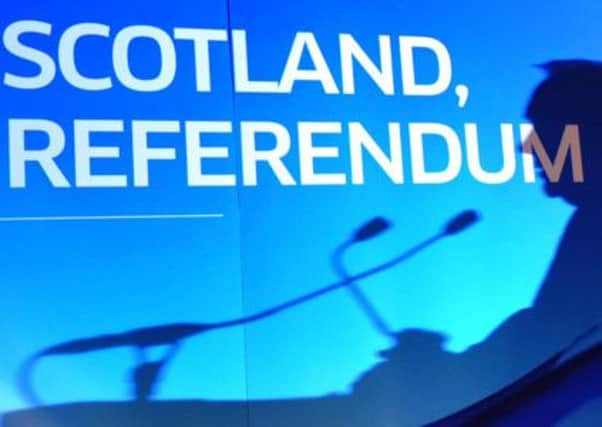Three books on Scottish independence reviewed


Yes: the radical case for scottish independence
James Foley and pete ramand
Pluto Press, £12
Arts of Independence
Alexander Moffat and Alan Riach
Luath Press, £9.99
Scottish Independence: Yes or No?
Alan Cochrane and George Kerevan
The History Press, £7.99
With the polls still showing an (albeit narrowing) lead for Better Together, it is tempting to paraphrase that line in a review of the latest crop of books on Scottish independence. Apart from a single essay, all the books reviewed support the yes-side. This is understandable: whereas the No side of the debate deals with existing realities, it is up to the Yes side to constuct credible dreams.
In Arts of Independence, Alexander Moffat and Alan Riach make the cultural case for independence. Writings about nationalism, such as Ernest Gellner’s Nations and Nationalism, usually point out that nation-building is about building “a literary high-culture”, and that case is made here. They also make a number insightful observations – for example about Slovenia, which became independent in the early 1990s. “Until independence”, they write, “Bratislava [the capital of Slovenia] was a backwater but is now a vibrant, bustling capital. You will see Scottish cities change in a similar way”.
Advertisement
Hide AdThis is a tantalising prospect but it is also, in a way, indicative of the narrowness of the argument in the book. Many Scottish cities are already “bustling”. And Moffat and Riach do not write about the creative industries. They do not, for example, analyse why Rockstar North – which developed the videogame Grand Theft Auto – is based in Edinburgh and not in Silicon Valley or London’s Silicon Roundabout.
James Foley and Pete Ramand’s Yes: The Radical Case for Scottish Independence is a passionate argument for a more socially inclusive and progressive Scotland. It contains a number of interesting facts and arguments. One is that Margaret Thatcher didn’t manage to shrink the bloated welfare state and that inflation was as high when she left power as when she gained it. The writers conclude that “even by the narrow capitalist standards [she] failed to make Britain great again”.
What the authors want is an (idealised) Scandinavian social democracy. Whether this is radical is questionable. They opine that “Norway, Sweden, Denmark and the Netherlands prove that such models of [centre-left agendas] are workable, and few doubt that they are desirable”.
This argument is a bit odd. For a start, three of the four countries have centre-right governments. The Dutch Prime Minister Mark Rutte is of the free-marked Volkspartij voor Vrijheid en Democratie, which is anything but socialist. In Norway, there is a coalition government between the Conservative Party and the Fremskrittspartiet, Norway’s equivalent of UKIP. Sweden’s centre -right government is the main inspiration behind Michael Gove’s education reforms. And in Denmark, the welfare-to-work scheme introduced by the Social Democrats in the 1990s is not far from what Ian Duncan Smith wants for Britain. The Scandinavian countries and the Netherlands have been progressive in many respects, not least childcare and health but the picture painted by the authors is too rosy.
The last book under review, Scottish Independence: Yes or No? contains an essay by George Kerevan, a former assistant editor of this newspaper, and one by Alan Cochrane of the Daily Telegraph: the former is for independence. The latter is against. Kerevan takes issue with the view that Scotland is too small and too poor. He also shows that it is a myth that Scotland is a net recipient of funds from the UK government. In fact, Scotland generated 9.9 percent of the total UK tax-revenue but only received 9.3 percent of public spending, which does not seem to be a huge difference. He similarly takes issue with comments of the President of the European Commission, Mr Barosso, that it would be “difficult, if not impossible for Scotland to join the EU”. Kerevan suggests that this statement is indicative of Barosso’s closeness to the Spanish government. This might well be true, but it does not make the statement less correct. Small countries such as Greece and Cyprus have often blocked seemingly sensible propositions for no other reason than national prejudice. Spain may well do the same.
Cochrane’s argument is less clear. He cites examples of phone-calls from the SNP to entrepreneurs who suggested that they were against independence. These “businessmen” – no women, it seems? – were told that their comments were “unhelpful”. If this is the level of intimidation and if this is the best argument Better Together can come up with, then the Unionists have a problem. Still, as in Spain in the 1930s, those with the best songs may not win the battle.
• Matt Qvortrup is author of Referendums and Ethnic Conflict, published by University of Pennsylvania Press